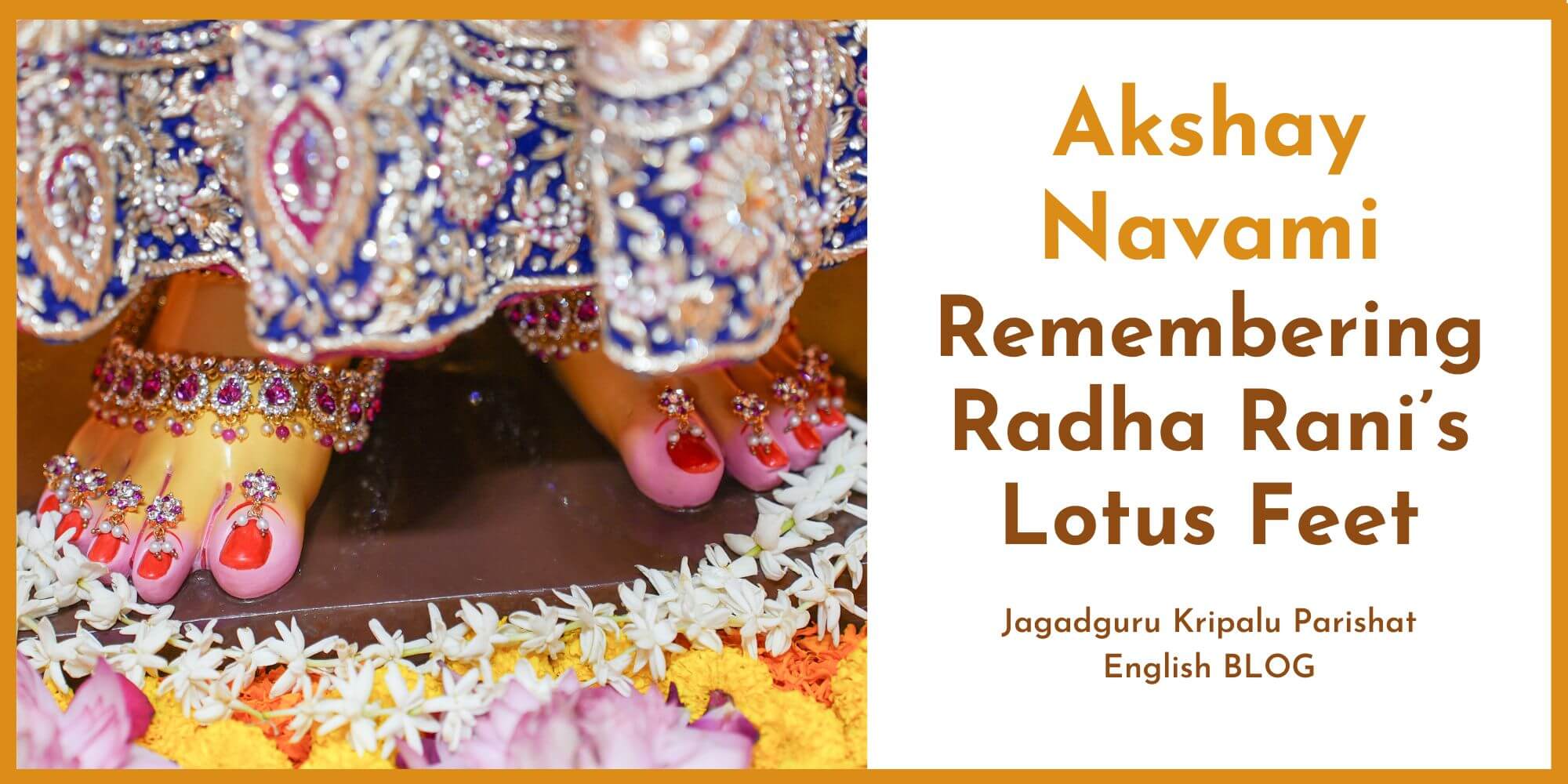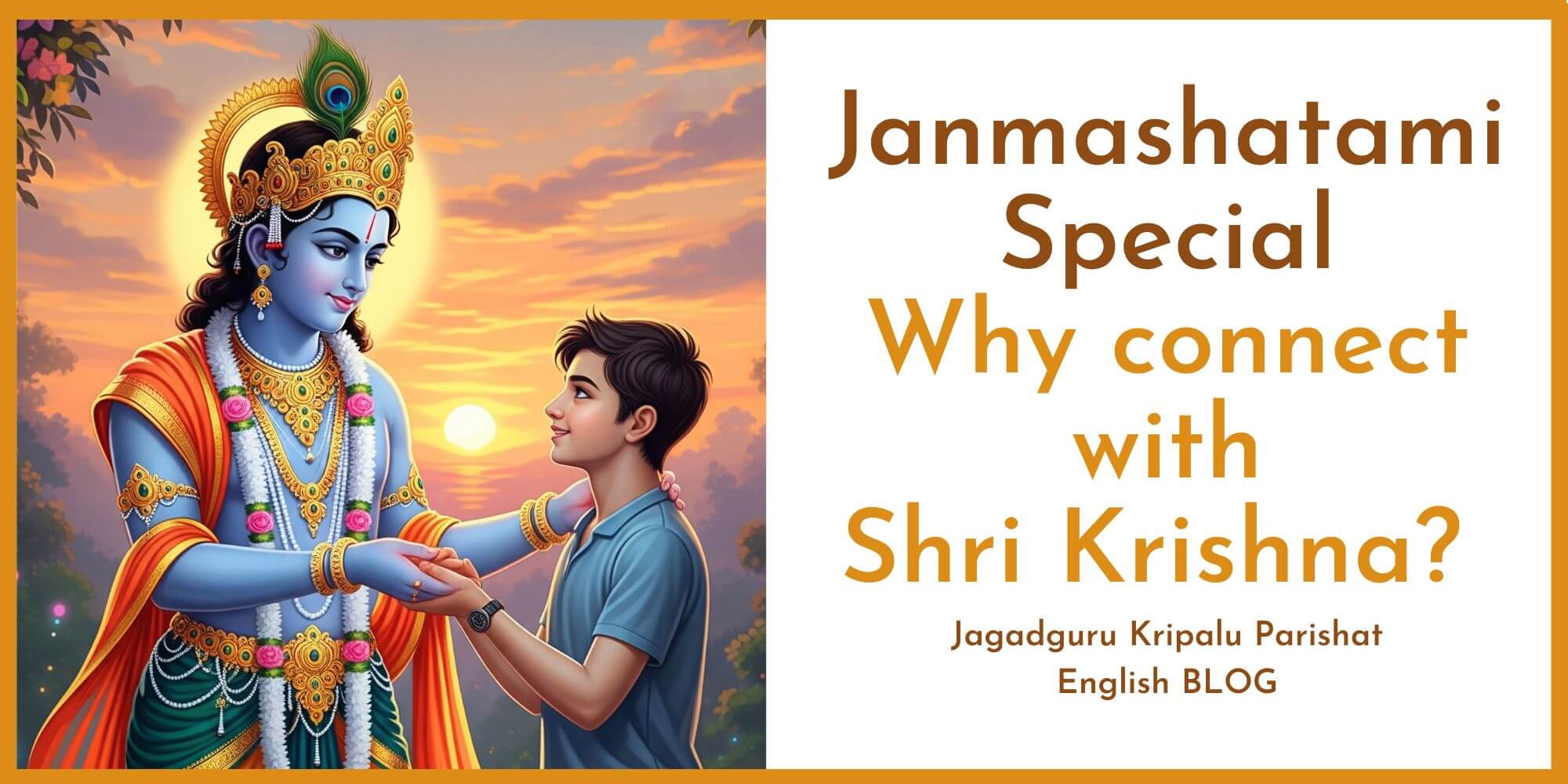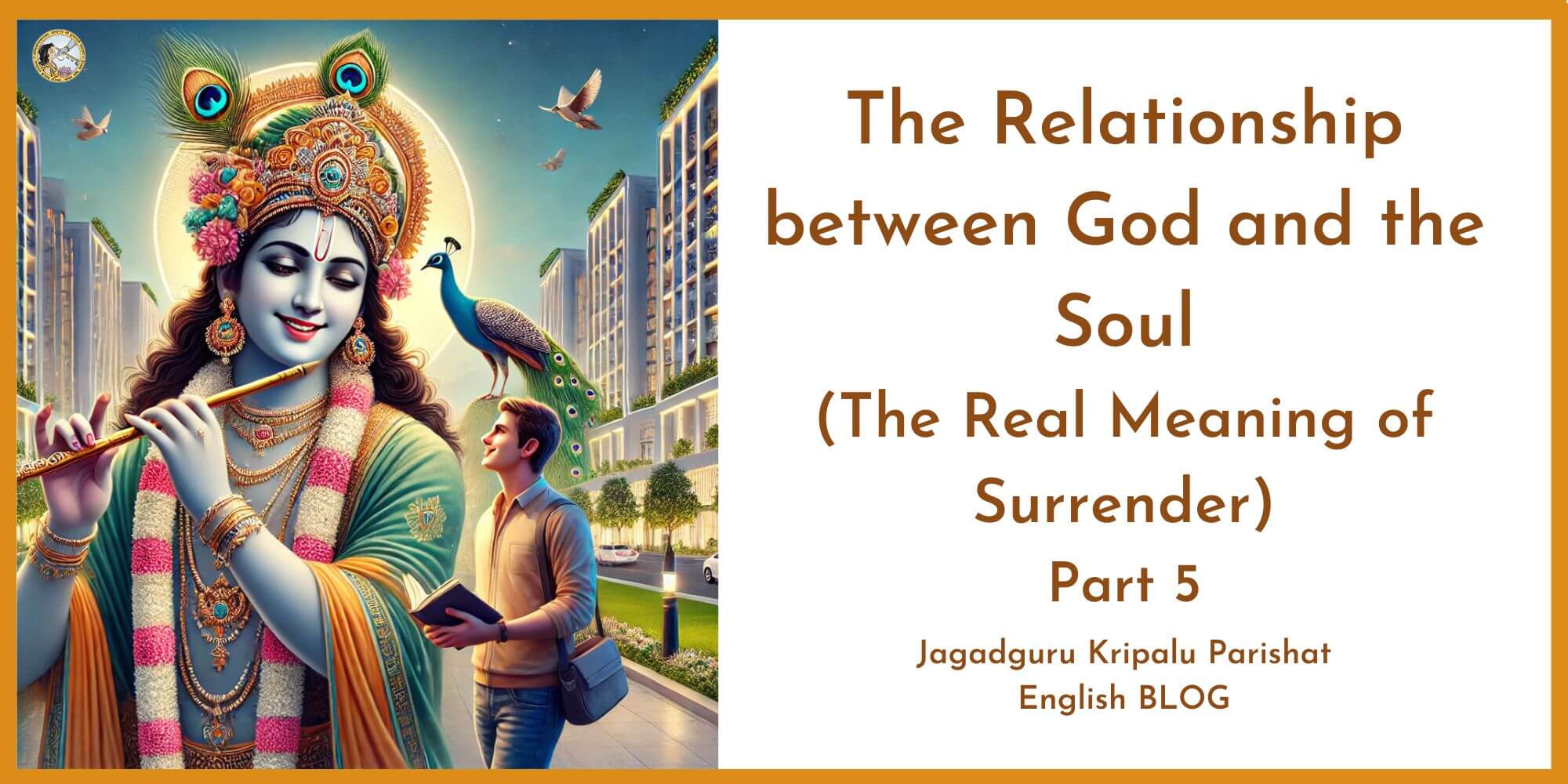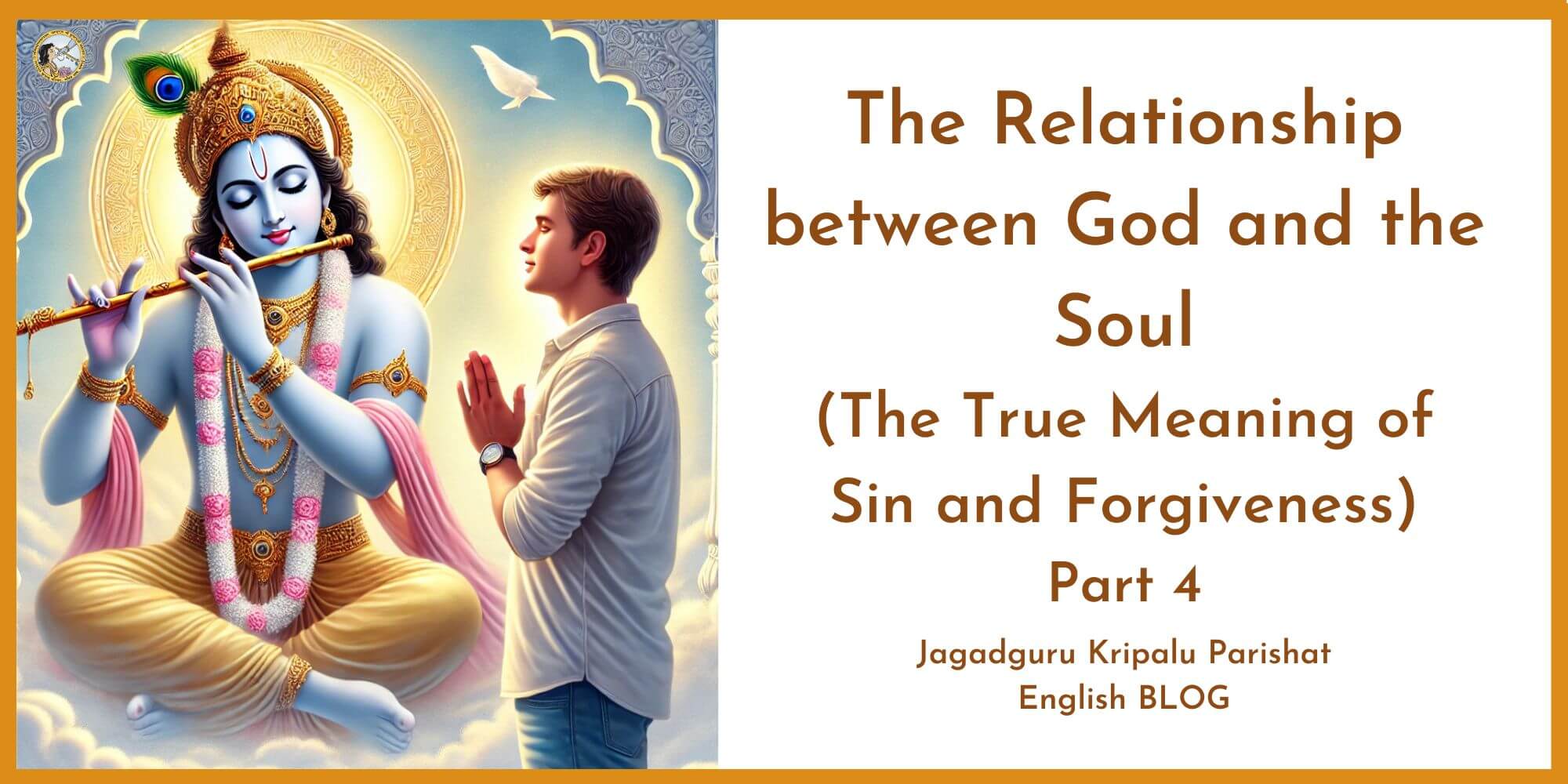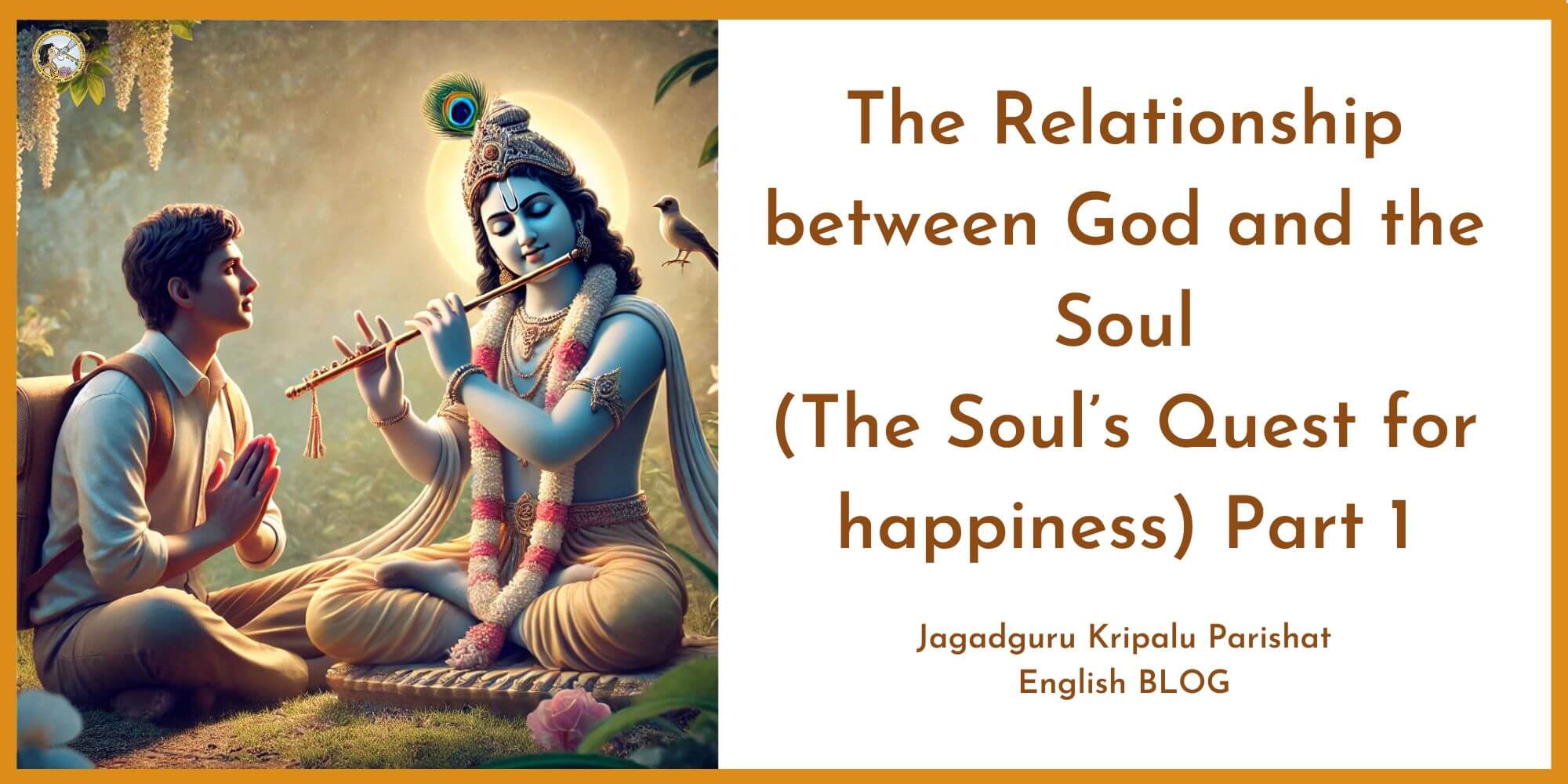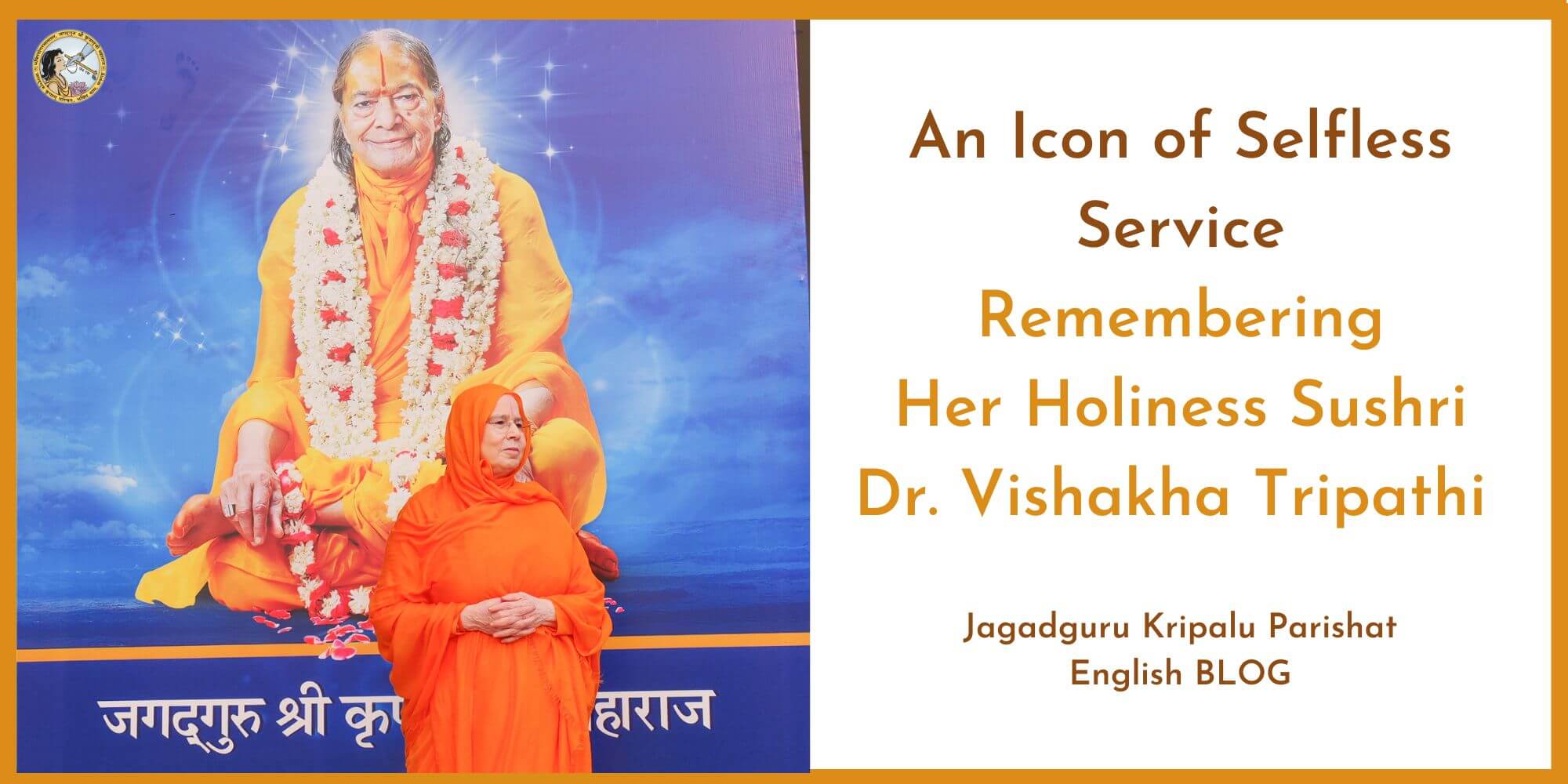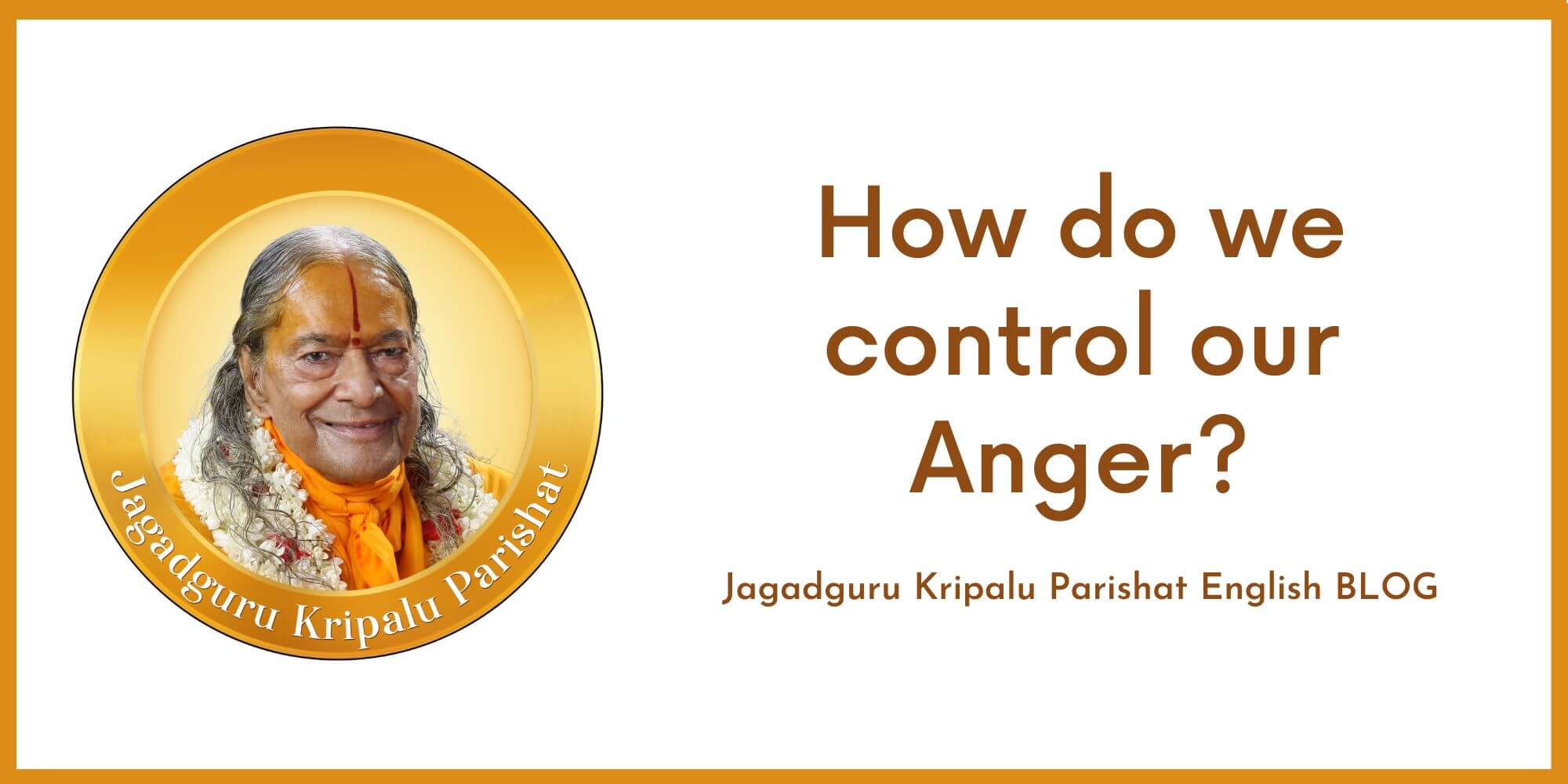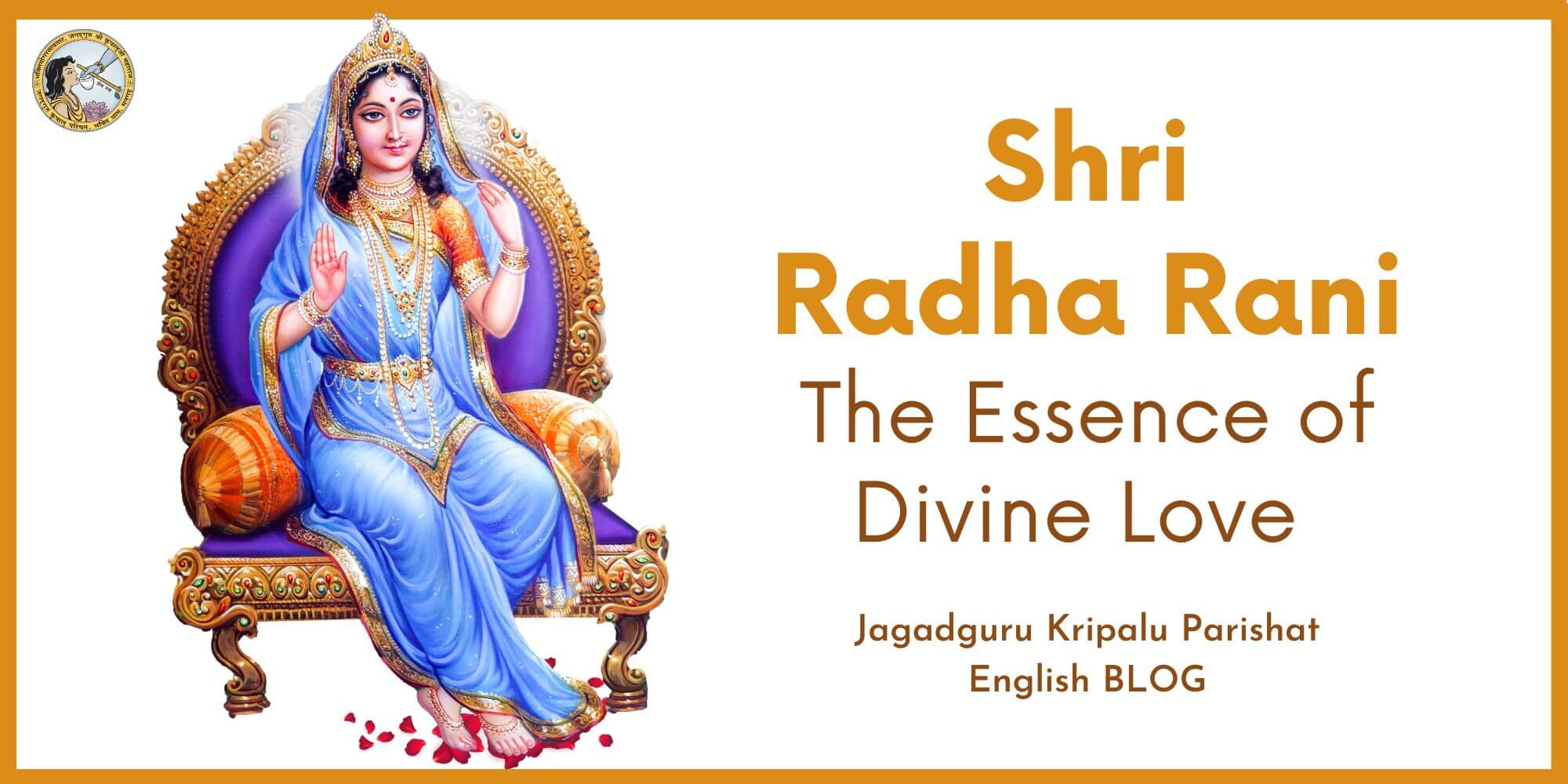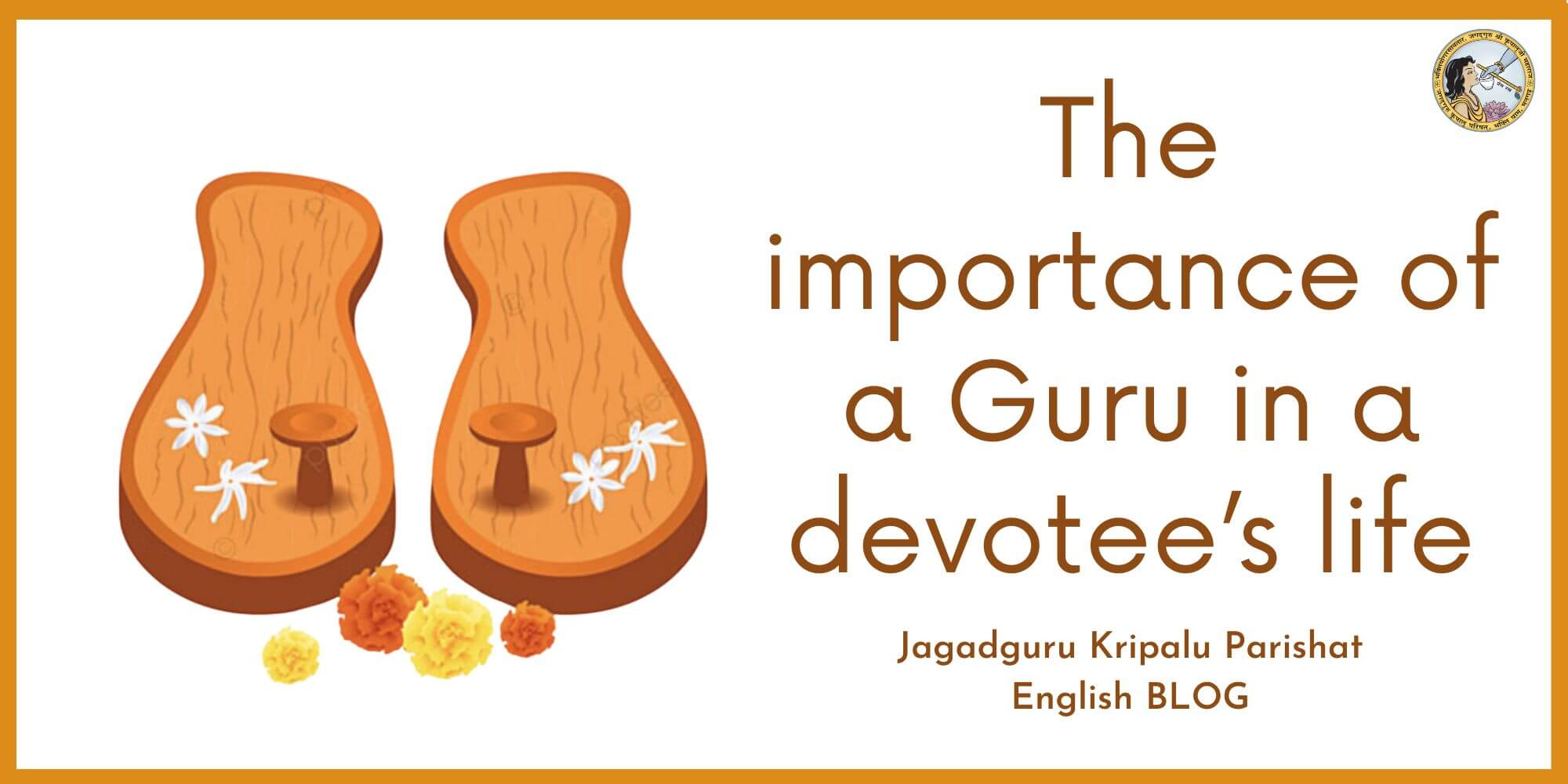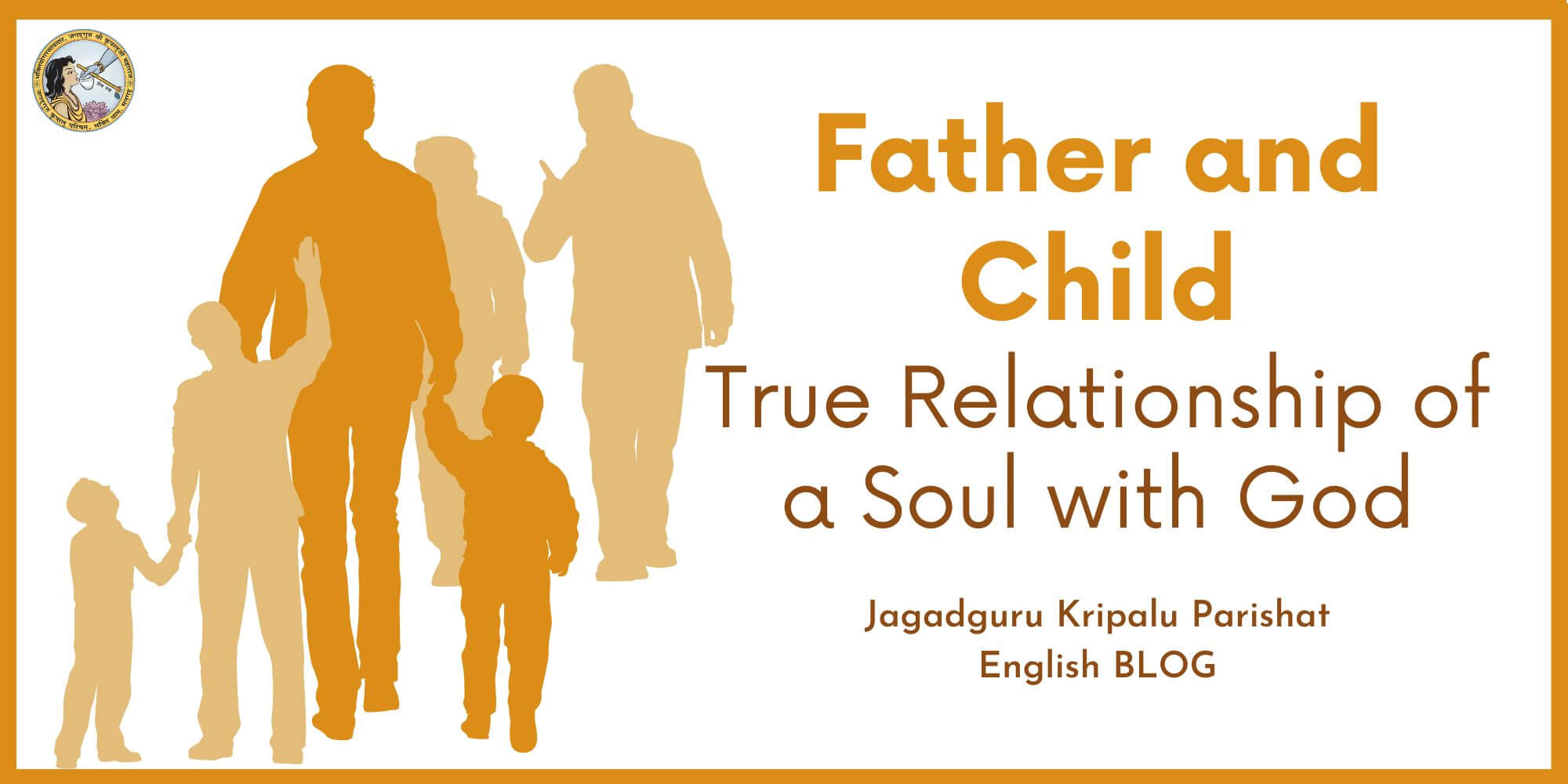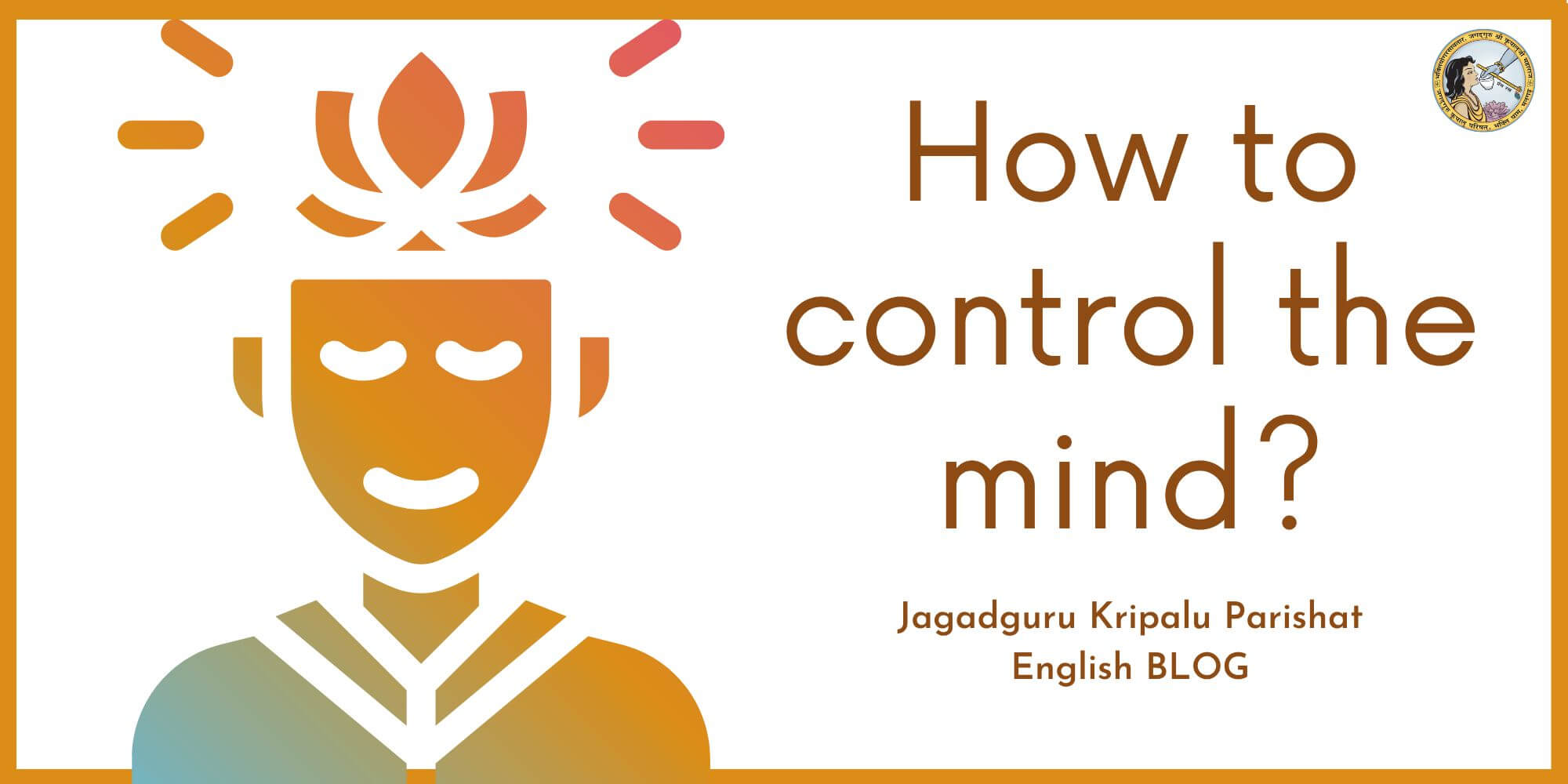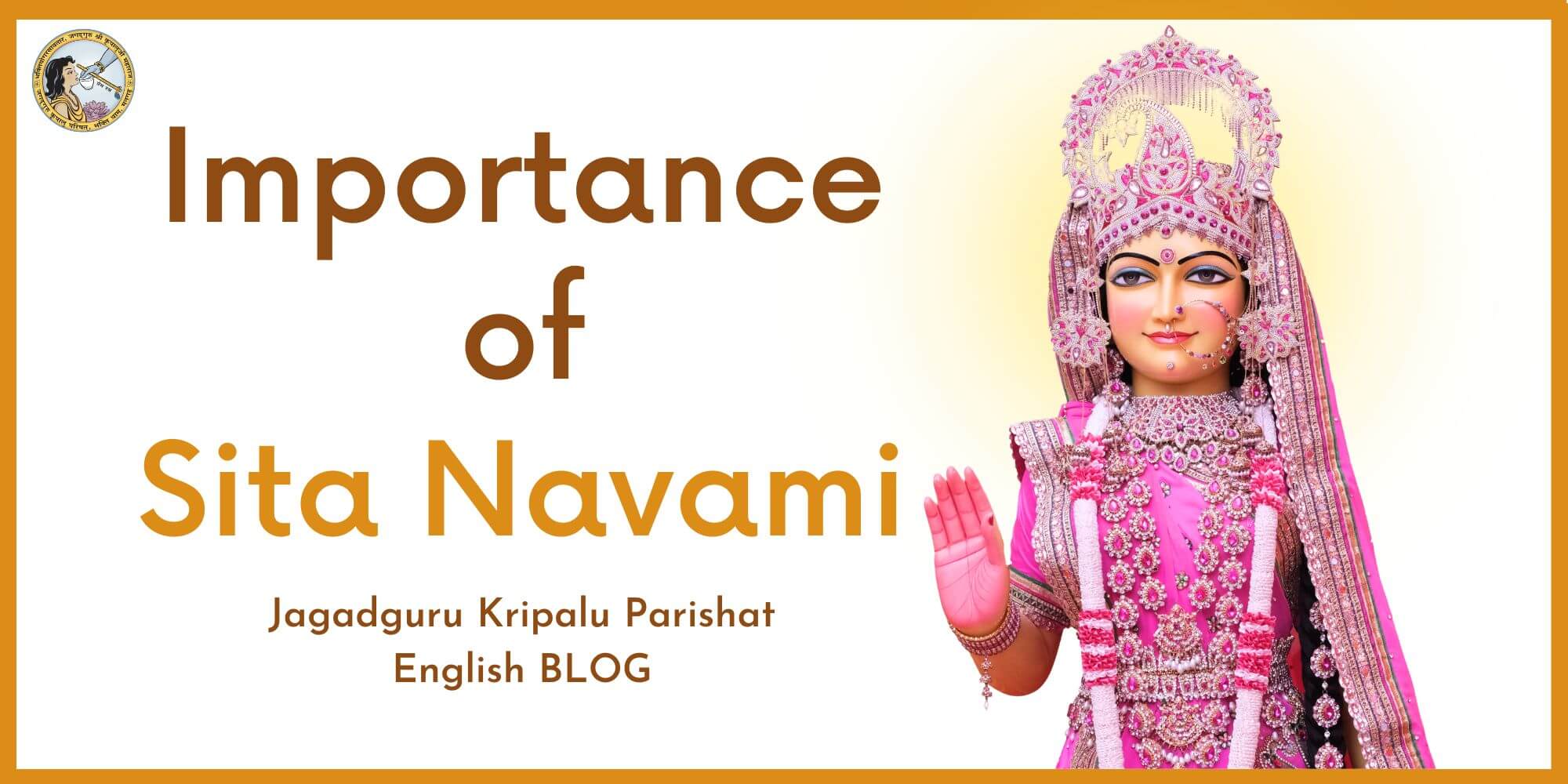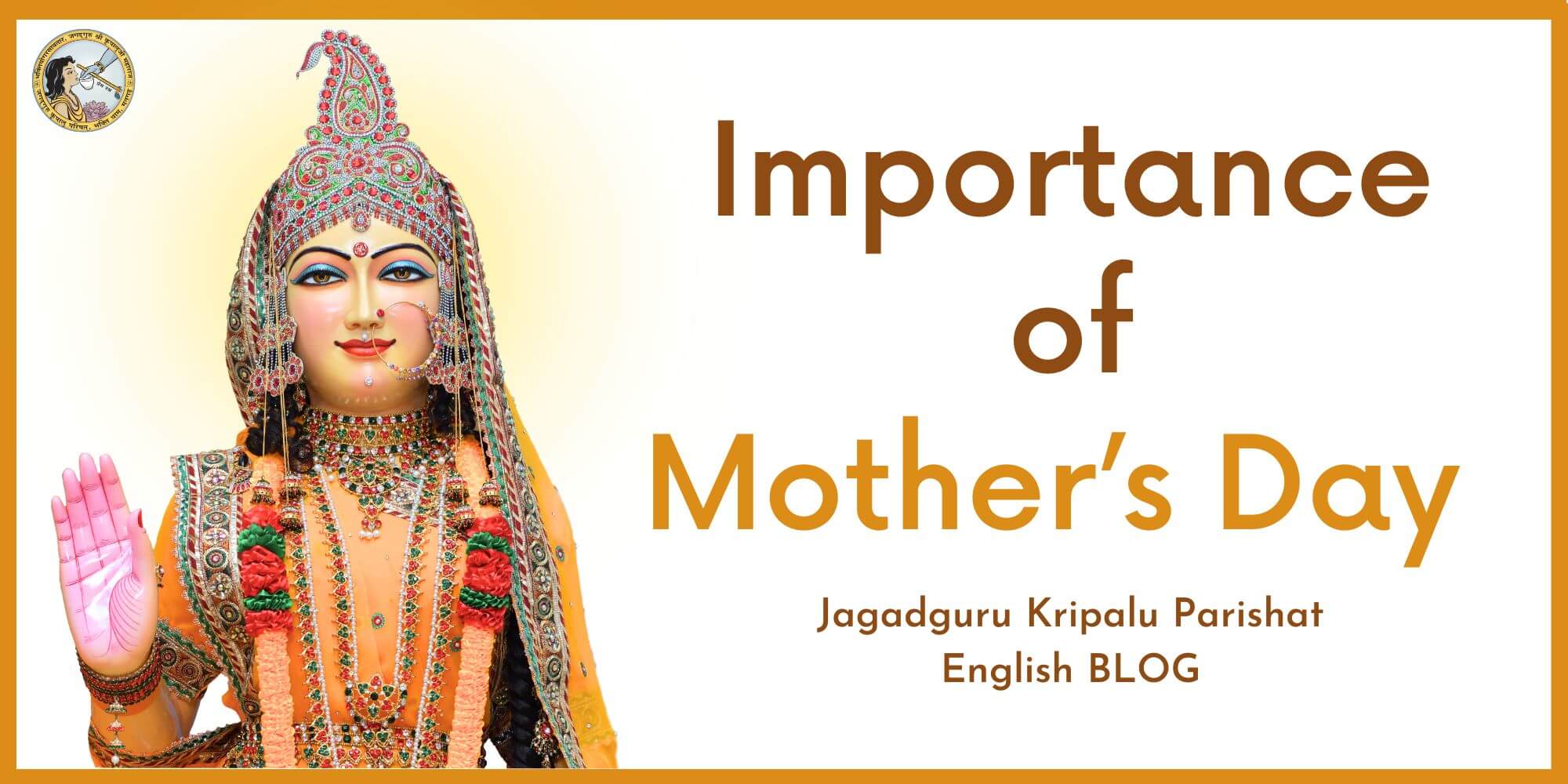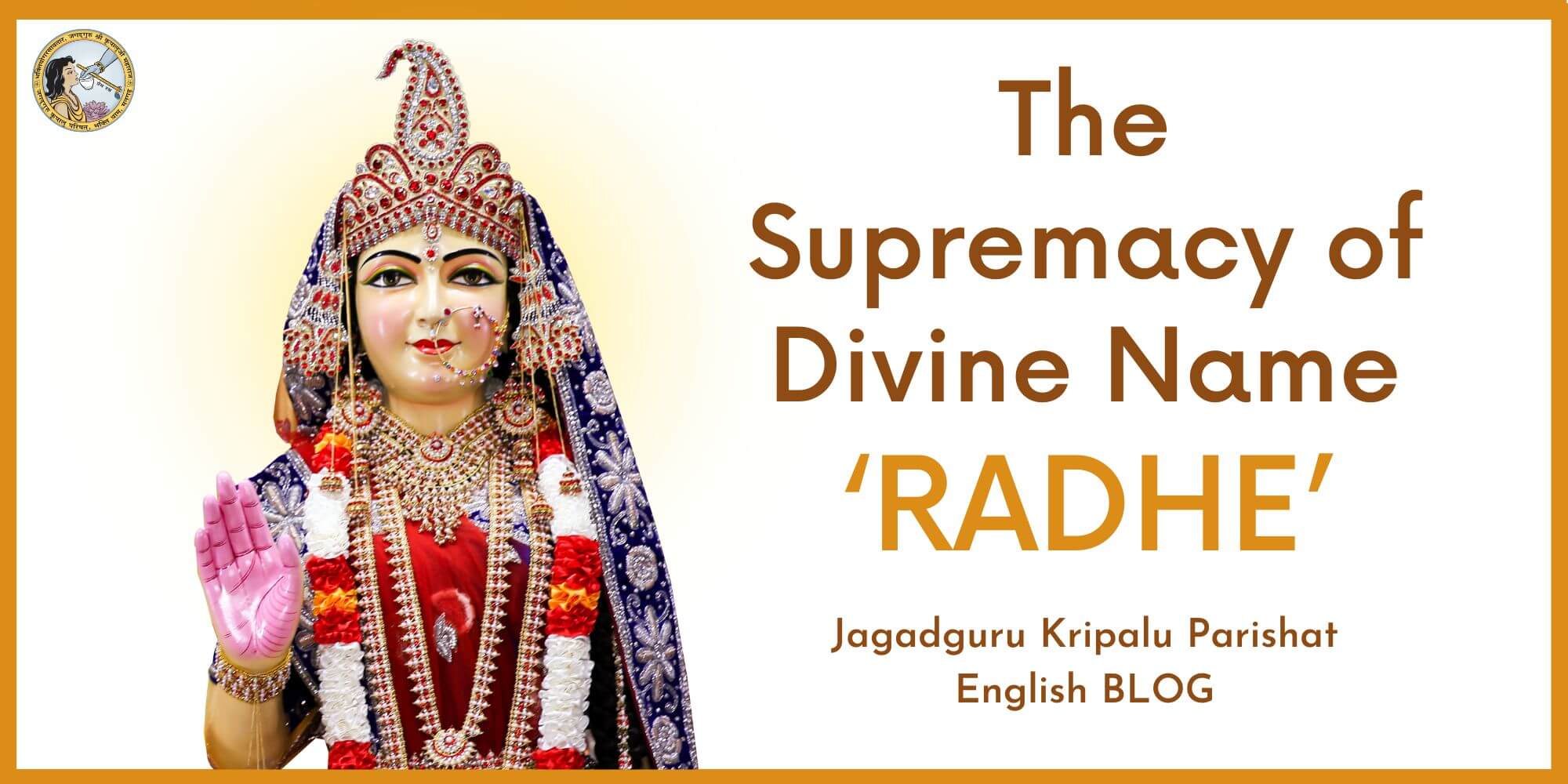How do we control our Anger?
By Jagadguru Shri Kripalu Ji Maharaj
Ever notice how actors in movies convincingly portray anger, joy, or conflict, all while keeping their true emotions in check? They are experts at faking emotions to fit their roles, but their real feelings remain unaffected. They are only acting to earn money.
Similarly, we need to adapt our behaviour to suit the situation, even if our internal feelings don’t align. There are two ways in which we normally behave in the world. For instance, if someone arrives at your home whom you’d rather not entertain, you might still greet them warmly and offer them tea. We act like this everyday with everyone based on the situation. But internally, we feel differently.
Your boss scolds you and you politely listen. But what are you thinking internally? You think angrily that this boss is extremely discourteous. He himself comes to the office at 12 pm and is telling me to come at 11 am. We have acted in these two contrasting ways since birth. We know how to act very well.
When a small child cries, he pretends to cry loudly. But you can see that there are no tears. But he knows that if he makes a loud noise, the mother will eventually accept his demands. Even that small child is also behaving in two different ways. And as we grow up, we learn how to behave in these two contrasting ways in order to survive in the world. In our interactions with people, we often need to act graciously, even when our feelings toward others aren’t entirely positive. This kind of behaviour is familiar to most of us.
But we find it difficult to be positive internally and not just externally. For example, we feel anger inside us for someone but externally, we still act politely in front of them. This is a common practice. We aren’t able to have positive feelings internally, even while being strict or showing harsh behaviour externally. We are not able to do this. This requires willpower and confidence. For this, we must have the power to control our mind and follow the instructions of our Guru. When we strengthen both our willpower and spiritual power, then these negative feelings will go away.
Only God and Saints are able to act negatively externally while remaining positive internally. Their internal state remains unaffected by external circumstances. This means that God and Saints might exhibit faults like anger, greed and other faults, but internally they don’t have them. And people in the world act fine externally while they have all these faults internally. We might have animosity against someone internally but externally we act in a positive manner. We all know how to do this by behaving sweetly with everyone.
However, we must practise everyday to correct ourselves internally in order to get rid of these faults. Vedic philosophy will help you. Now for example, our wife, husband, father or our friend scolds and insults us. And we feel bad when we hear them scolding and insulting us. But now if I answer back, their anger would increase and they would behave even more badly, which would result in us getting more angry and we would be behaving even more badly. And in this competition of anger, we might even end up beating each other or more. Many divorces happen because of this kind of competitive behaviour.
So to prevent such incidents, we also have a reason to control our anger. So the first thing to do is – when someone says something hurtful, then be quiet. Don’t answer back. The second thing to do is to become conscious of your anger and stop it right away. Realise that what the other person is saying is a fact in any case. There is no question about this. It is a fact that we are filled with faults (from innumerable lifetimes’ sins and being under the control of Maya). Therefore, why should we feel bad when we hear this from others?
The third thing to do is realise that the other person is probably angry with us because they perceive that we are harming their self-interest. And that could be the reason why he is insulting me. Realise also, that the person will not always remain in the same state of anger. He will eventually calm down and become normal. So don’t react. We should present our intellect with many reasons so as not to aggravate the situation. Then slowly, continue to fix yourself internally. So first introspect, analyse your thoughts. Revise the philosophy of Guru.
Also, if the behaviour of that person gets worse then the anger inside of us will also grow. This will harm us more. So the first solution is to be quiet. That’s it! First, stay quiet. After ranting as much as he wants, and when the person realises that you are quiet and calm, then he will also calm down eventually and be quiet. If we respond back, then the other person will get more angry and in turn will make us more angry too. This will be very harmful. Therefore, when dealing with people in the world, if you face someone who is insulting you, then stay quiet and don’t respond back. Or just leave from there. If you cannot leave the place, then the least you can do is to remain silent.
And then we must introspect. Someone has called me selfish, but what he has said is actually the truth! It is a fact that everyone is selfish and so am I. What is there to be angry about? The Saints and scriptures have told us this and we have even understood this philosophy. So remain silent and put an end to your anger. So based on the knowledge of the philosophy imparted by your Guru and the scriptures, we have understood that we must not get angry and fix our faults first. We will have to practise this.
If you forget this and end up saying something hurtful to another, then stop yourself immediately. For instance, if a woman’s sari catches fire while she’s cooking, she must act swiftly to extinguish the flames before they can spread and cause severe harm. Similarly, when you feel anger or any other negative emotions arising, address them immediately to prevent them from escalating. Just as a small flame can grow into a dangerous fire if left unchecked, unchecked anger can intensify and become much harder to manage. The world is rife with tension and conflict, often fueled by unchecked anger and harsh words exchanged between people, whether between spouses, parents and children, or siblings.
For example, the husband may say, “Why have you kept this cream here? And the wife replies angrily, “So should I keep the cream on my head instead?” Now they start fighting due to anger. “I am not telling you to keep this cream on your head. I am asking why haven’t you kept it in the room?” says the husband. “Will thieves steal it from here?” responds the wife. See how they are arguing with each other. And this is how anger escalates and can lead to people beating each other up and can lead to even much worse things. You have seen such things happen in the world.
The words we speak are the most dangerous thing. Most of the tension we experience in our home is due to the harsh and thoughtless things we say to each other. In reality, other types of tensions are very few. The majority of our tensions are due to the way we speak. Therefore speak sweetly and speak less. If someone says something insulting to you, then tell yourself right away, not to feel hurt. Do not escalate the situation.
This philosophy of ours, that “If we will not stand up for ourselves and respond back, then the other person will insult us more” is wrong. People often say that, for example, if my husband scolded me and if I do not respond back to him, then he will try to assert himself even more. This is an incorrect philosophy. While facing someone angry, it is better to remain silent. By remaining silent, the upset individual may continue to say things but they will then become quiet after sometime. But if we ourselves will not stay quiet, then how will the other person become quiet? And the argument will keep on escalating.
Therefore, the first thing to remember is that you should control the words you utter from your mouth. And the second thing is to fix yourself internally by not feeling hurt and learning to control your anger. You will have to practise this as it will not happen right away. For instance, if someone’s words trigger your anger to a level of 25%, resisting the impulse to react and instead focusing on positive thoughts can help you manage and diminish that anger effectively. However, if you respond impulsively, it can escalate the situation. What started as a manageable 25% anger can quickly intensify to 100%, making it much more difficult to control. Thus, exercising patience and maintaining composure is key to preventing the escalation of anger.
Therefore, the first and the best remedy is to remain silent. And talk to the person in front of you, based on their personality. For example if someone younger than you has behaved badly and you think, by scolding them, they will improve and things won’t escalate, then behave accordingly. On the other hand, if someone is older and even though he is saying the wrong thing and you argue with him, he will get more angry; then you should remain silent.
For example, our elder brother, father, mother, etc, are saying something wrong. If we think that the other person is wrong, and we should correct them, then this is a wrong thing. Because this other person has pride due to being an elder person. Therefore it is unlikely that they will accept what you are saying, even if you are right. And this only makes the situation worse.
Therefore, we should think about whom we are talking to before saying anything. You cannot behave in one standard manner with everyone. Adapt your words and behaviour according to the person you are talking to. But feeling hurt and angry internally is something that is always wrong. No matter where you are. We must take care of ourselves by not feeling hurt and angry. Always be polite externally, wherever it is required.
So if a weak person has a gun and you are asked to raise your hand, then do so. Don’t think that just because you are stronger, that you can punch that person. They have a gun, they can shoot you, so don’t behave like this. Be quiet and raise your hands. So look at the situation and person’s behaviour and then act accordingly. Always being polite to everyone is also dangerous. Being arrogant all the time is also dangerous.
Use your intellect to decide how to behave in front of someone. A person behaving the same way with everyone will not be successful in this world. If someone is always nice, then he will be open to exploitation by criminals. And if someone is always arrogant and impolite, then he will not be able to benefit from those who are elder to him who could offer valuable guidance or support. Instead, adapt your behaviour to suit the people and situations you encounter.
The scriptures teach us to behave lovingly towards people who are your family and close ones; extend mercy to the less fortunate; surrender and offer your mind and devotion to a Saint; approach scholars with respect and humility; display courage when confronted by adversaries; behave differently according to the situation. Adjust your approach based on the person and situation. The one who follows this can be successful in the world.
But my main point is that even when you act angry in front of someone, make sure that internally you don’t feel any anger. If we get angry and hurt another, then we ourselves will get hurt. What kind of intelligence is this? If we get angry and our hearts are burnt by that anger, then we destroy our Atmashakti, along with the other person’s too. You both said bad words to each other and you both got hurt. (It is a well known fact that anger can cause poor mental health).
Therefore, it is proven that being angry internally is not going to be beneficial. Therefore think before you behave. Understand the personality and the nature of the person you are talking to, be it your mother, father, brother and then behave accordingly. Different strategies are required for different individuals and scenarios. Speak and act in ways that will not escalate the situation, adapting your approach to suit the nature of the individual involved.
Everyone has a different nature. Now if the other person happens to be your father, then as their son, you cannot really run away from him. The father will be with you all the time. Now understand his nature and act according to his nature. The behaviour should be in such a way that you are also able to get your work done and things don’t escalate. This is intelligent behaviour. Intelligent behaviour involves understanding and adapting to others’ nature while maintaining your own internal calm.
Applying the same behavioural strategy to everyone is unwise. Tailor your approach to fit the individual and context. The person who does so is foolish. Such a person will never find success in the world and will always end up harming themselves. This balanced approach leads to better relationships and a more peaceful life.
*A brief introduction of Jagadguru Shri Kripalu Ji Maharaj*
(Known by His devotees as Shri Maharaj Ji)
The original title of Jagadguruttam (Greatest Spiritual Teacher of the World) was bestowed upon Shri Kripalu Ji Maharaj on January 14, 1957, by Kashi Vidvat Parishad (a council of 500 greatest scholars saints of India). He composed divine texts like Prem Ras Madira, Prem Ras Siddhant, and Radha Govind Geet to lead us on the right path of devotion. He also gave priceless monuments as gifts to the world which include Bhakti Mandir located in Bhakti Dham, Mangarh, Prem Mandir located in Vrindavan Dham, and Kirti Mandir located in Barsana Dham. Shri Maharaj Ji also built hospitals for the impoverished, the Jagadguru Kripalu Chikitsalaya in Vrindavan, Jagadguru Kripalu Chikitsalaya in Barsana, and another one in Pratapgarh. All three help millions of underprivileged to gain free access to medical care. His Kindergarten, School, and College for impoverished girls Jagadguru Kripalu Parishat Education is located in Kunda and provides completely free education.



